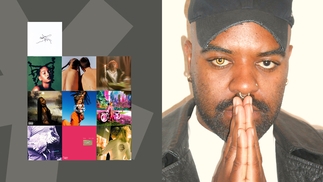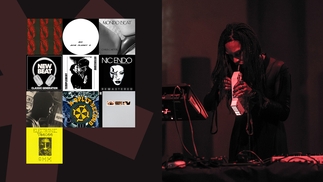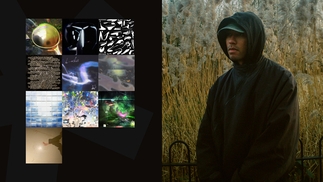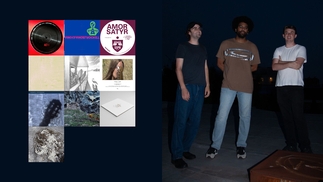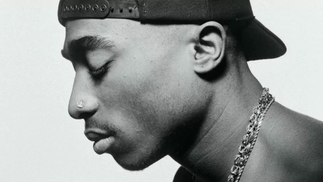Russell E.L. Butler is building a home in techno
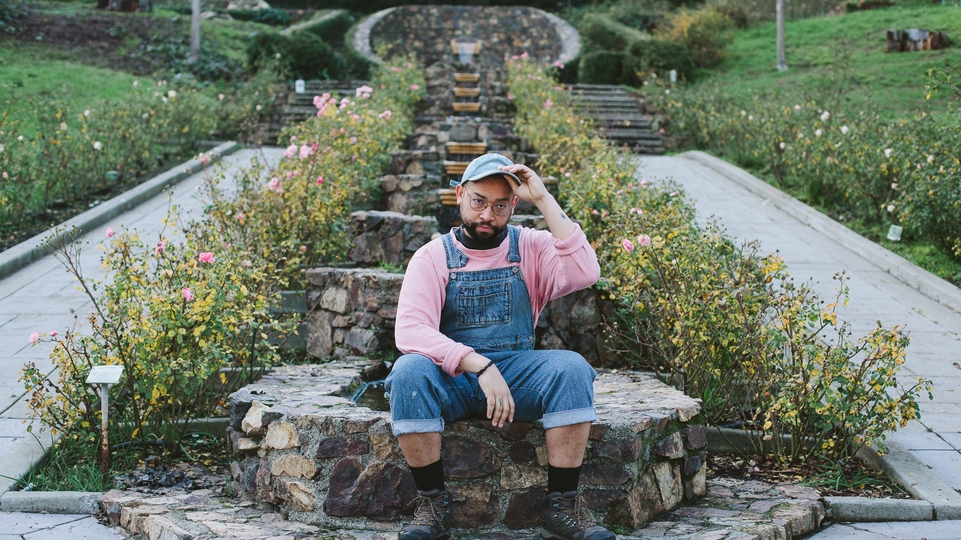
Oakland-based producer and DJ Russell E.L. Butler delivers 60 minutes of exhilarating techno and radiant rhythms as part of our podcast series. We catch up with the artist to discuss community, the power of noise and being a force for positive change
Russell E.L. Butler’s artistic process is built on community. Based in Oakland since 2009, the Bermudian producer, DJ and live musician has become an increasingly vital figure within a global wave of artists and collectives reinstating techno’s identity as a boundless and borderless social movement – one which makes use of defiant rhythms and rapturous sound design to kick against oppressive power structures, and which gives a voice to those who are so often marginalised and silenced.
Where for some, art, music and the pursuit of survival therein has become an act of radical individualism, Butler – who identifies as a “non-binary, queer, black, immigrant” – is dedicated to nurturing an environment of mutual platforming, where both individual and collective achievements are celebrated and championed, and where exchanges of ideas, asetts and spaces are crucial.
It’s something that’s evidenced throughout their catalogue of immense, experimental and radiant techno. Take 2017’s ‘I’m Dropping Out Of Life’ on CGI Recordings, for example. A weighty but melodic offering, the four-track EP was released just two months after Butler narrowly escaped the Oakland Ghost Ship fire of December 2016. Produced partially in the company of friends Nackt and Cherushii, two artists who lost their lives that night, the release comes paired with a poem written and dedicated to their memory.
2018’s ‘The Home I’d Build For Me And All My Friends’ LP on Left Hand Path was also dedicated to the 36 people who died in the tragic blaze that shook the global dance music community. A cathartic collection of exhilarating cuts recorded on their extensive hardware set-up, the album utilised and manipulated the very idea of physical and sonic space to demonstrate techno’s capacity to feel defiant and liberating, while still remaining welcoming and dancefloor focussed. The resolution, life and viscerality of the record captured both the singular work of an artist with their machines and a collective vision, leading to it being ranked 16th in our top 50 of the year in 2018.
“I've always been a student of cultural movements in a way,” Butler tells DJ Mag over Skype, speaking from their childhood home in Bermuda in between North American tour dates. “And I feel like one of the fundamental aspects of genres like punk, house, techno and hardcore was this idea that, as an individual, there is a place for you within this greater community. There is a place for your voice. Your individuality within that space is valued.”
“As soon as you start saying ‘techno is this, techno is 4/4, techno is that’, it becomes easier to commodify and easier to package," they add. "Then you kind of lose a lot of the more progressive and cognitive experiential aspects of those genres”
For Butler and Californian collectives such as Club Chai, Honey Soundsystem and 100% Silk, community-led, DIY ideals toward music and the arts are preserved not just out of shared interest and experience, but out of necessity. A shortage of venues, restrictive licencing laws and a competitive environment mean that for the scene to survive, never mind thrive, communities grow in whatever limited spaces they can. They grow not only out of a common interest and artistic pursuit, but out of shared struggle and a need for representation and space.
“People have to do this or nothing would really happen,” Butler explains. “If you don't do it, you end up being ostracised.”
“I'll make a correlation with the black church, for example. The black church was incredibly important to the progression of black people because it was one of the only places where people could collectively organise, know that they were safe, have a community and build some kind of economic independence within their confined space. And I think there are certain models of that that also exist in queer communities, trans communities and for other people of colour. The church represents the commons, if you will. It’s where people could get together and bitch about how terrible the world is and try to help each other out. [Where they could] pool together resources and make things happen.”
“For me, growing up in a place like Bermuda,” they add, “As much as I have a connection to this place, and as much as I love aspects of it, I had a very difficult and somewhat emotionally traumatic time because I never fit into any of the kinds of dominant cultures here. I was always looking for someone who looked like me. or who had the same experiences as me. Now I'm in a position to do that I take it extremely seriously. I feel it's a core motivator of my work that I have this greater responsibility, for better or worse, to try and make a space for folks in my community.”
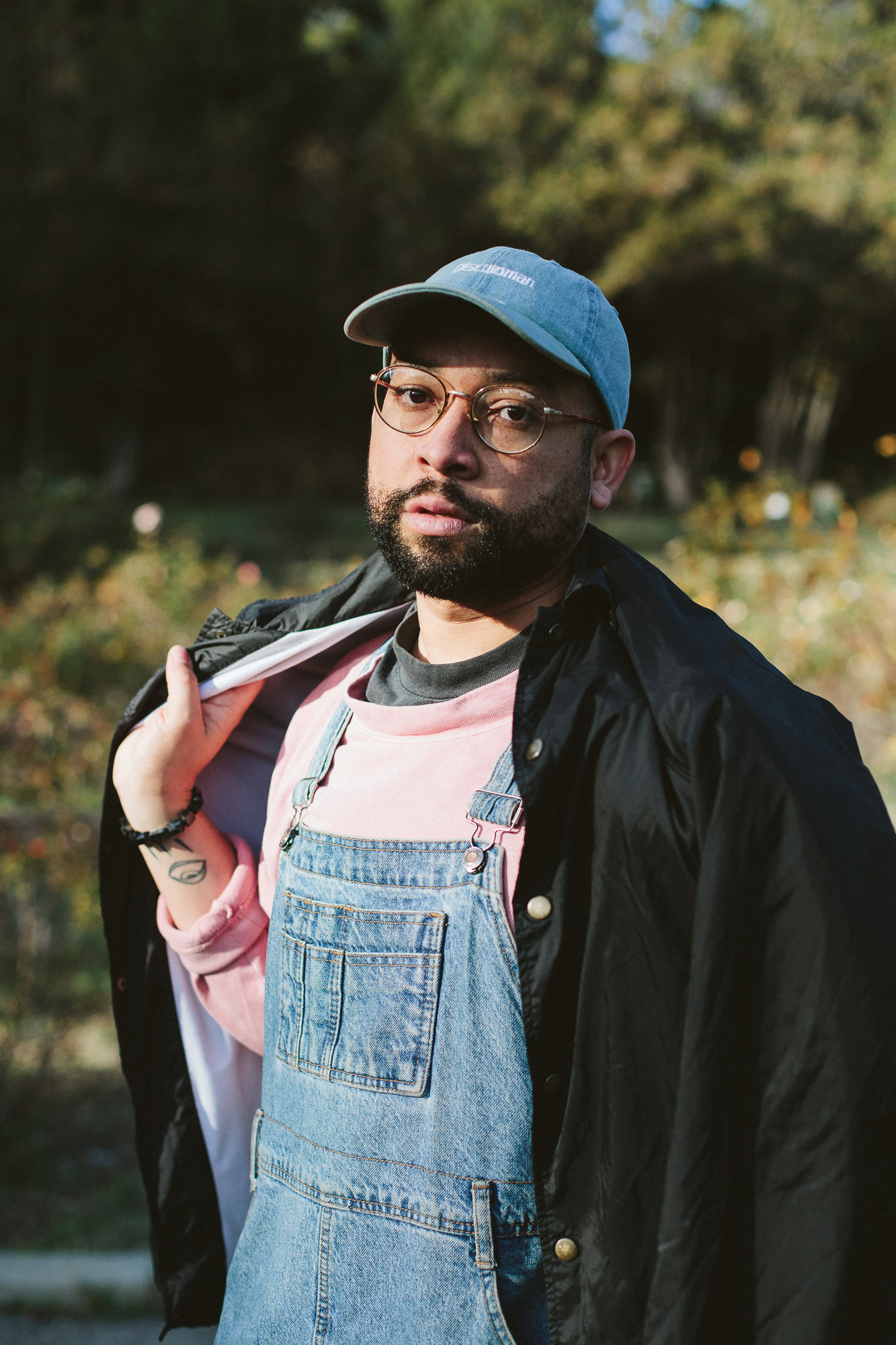
Acknowledging and respecting one’s own responsibility within that space is vital, says Butler, particularly in the creation of exchanges. That could mean booking fellow Bermudian DJs met on trips home to play in California, or simply flagging up the work of artists they feel deserve the recognition – Piano Rain, Beast Nest, CCL, to name a few. As a person whose platform as a DJ and artist is becoming more prominent, and who gets to travel with their music, Butler makes it clear that the journey has been far from solitary and that the support will always be returned.
“I would not be in the position that I'm in if it wasn't for that scene,” they say. “It would be not only a disservice to the people who have helped me but also an outright lie to act like all of this was birthed from me. I'm not going to devalue the work I've done or the kinds of labour I've put into my art, but it would mean nothing without the people who have championed my stuff and helped me pay my bills. ”
“[California is] a place that opened up so many aspects of my life and still has such a rich and incredible culture,” they add. “But I fully recognise it's difficult to penetrate. I like to be an ambassador for that, for some of the greatest artists you'll never hear about who are doing things you can't even imagine because they don't have the same access to distribution or the business infrastructure.”
And so too, the favour of exchange is returned, with tracks from their releases being picked up by a versatile array of DJs including Nina Kraviz, Avalon Emerson, Bearcat, Jubilee and Paul Woolford, each of whom incorporate Butler’s raucous sound into their own distinct process.
The release of their latest EP, ‘Petty’, on Ghostly will find Butler’s sound hitting more dancefloors than ever before. With four propulsive, incendiary cuts of hardware-driven techno, Butler burst into 2019 on fierce form with their most "peak-time" release to date, while still retaining a keen sense of self-awareness and reflection. And once again, even at its most direct, Butler’s work is based on exchange and collectivism.
“This company in Latvia called Erica Synths have a live stream that I played at,” they explain. “They brought me out, put me in a hotel and they traded me their FusionBox, which is an analog multi-effects unit with tube distortion a two-stage bucket brigade delay. That’s what all the drums are summed through on ‘Petty’.”
“I take any kind of goodwill within this industry, artistry, whatever, very seriously,” they explain. “So when someone gives me a €450 piece of gear, you know damn well I'm going to put it on a record!”
Butler’s obsession with machines and the manipulation of sound started developing at a young age, from violin lessons at age four to a fascination with electric guitar pedals as a teen. By the time they went to study at the School Of The Museum of Fine Arts in Boston, a fascination had started to develop in extreme genres like noise and the more visceral strands of doom, black and thrash metal, all the while retaining a healthy love for hip-hop and hyphy.
“Up to that point the most experimental thing I'd heard was Sonic Youth!” they remember. “The first show I went to in Boston was The Body in a basement with like six-foot high ceilings and the whole back wall of speakers. My friend got me into all this stuff, and they were also into synths and making tapes and stuff. To me, noise and experimental music is all about investigating the hell out of process, exploding it and tearing it apart. Eventually, having a synthesiser within that scene was like the pinnacle. And then having a modular was even higher than that. I was done writing lyrics and singing. I just wanted to investigate these instruments.”
“Once I started to learn that other people were making music that was structured in a different way with an experimental, futurist attitude I gravitated toward it,” they add, emphasising that a background of listening to acts like D. Yellow Swans, Hive Mind and Hair Police has come full circle even as their focus turned to the dancefloor on the discovery of Drexciya and Trax Records – "Hearing people making fucked up music and putting a kick drum under it and feeling like, 'Oh, I have a place here!'"
“It’s funny now to see people starting to make noise music again or DJs starting to make ambient music. There's this cyclical thing going on. It's not just for the intro or the outro anymore! I can drop free jazz 45 minutes into a set now! Y'all are going to listen to an upright bass solo! Chill!”
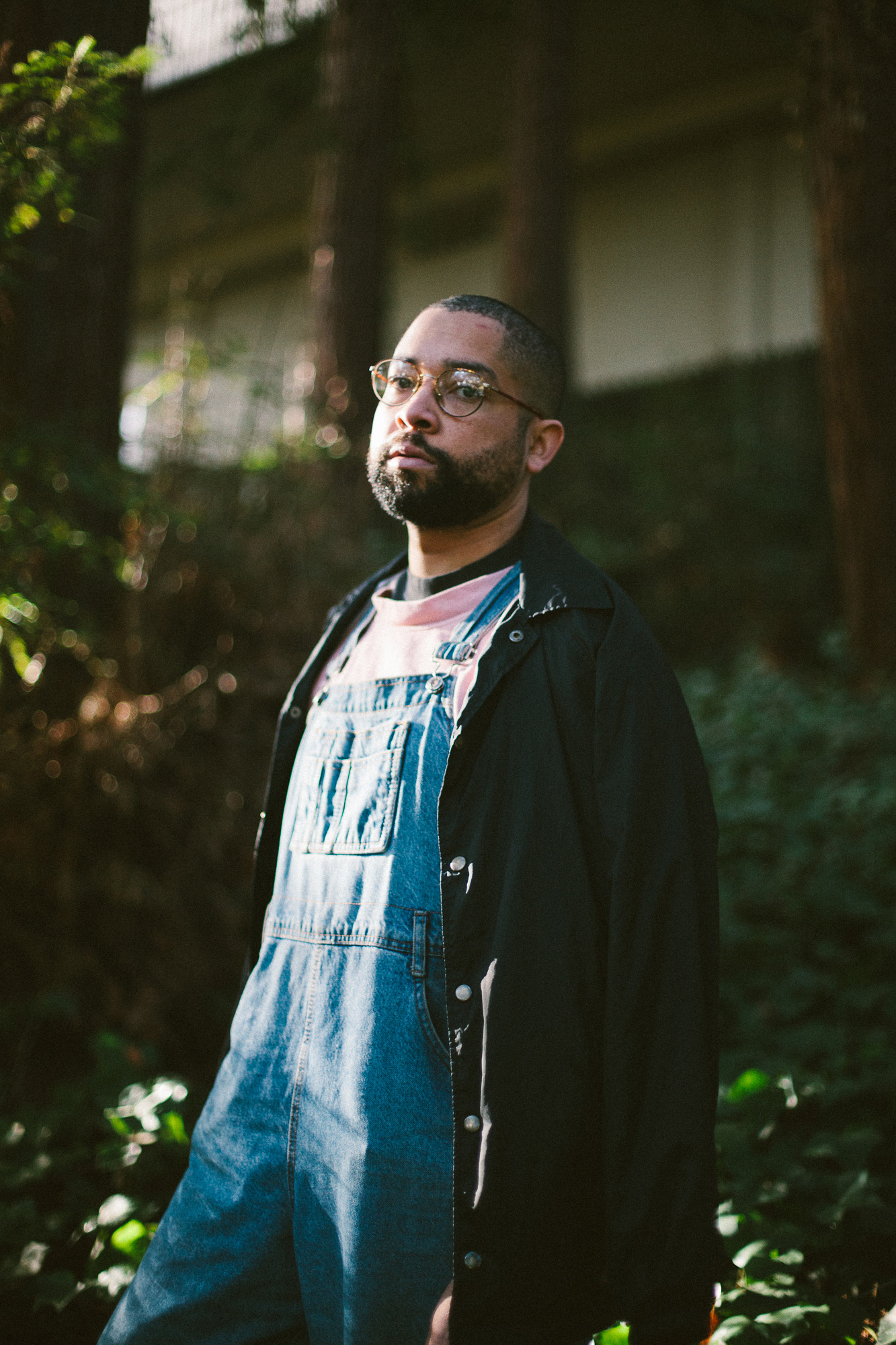
That experimental, process based outlook served them well upon moving to California, where they found kindred spirits in people like Matt Dryhurst and Holly Herndon, who worked with Butler for two years at a local children’s museum.
And from there, as they say, it was “off to the races”. Butler became entrenched in San Francisco’s scene, as an artist and friend, as a DJ, promoter and performer. As with any story, it was these myriad tiny changes, influences and individuals that guided them to where they are today. And it was in coming to understand the importance of those micro-movements that their philosophy of community and shared responsibility solidified. With the help of discovering the writing of beloved science-writer Octavia Butler, those ideas quickly became what they describe as a “spiritual and political centre” in their life.
Upon reading the author’s ‘Parable of the Sower’ – a story in which a queer, black woman founds her own religion in the midst of a dystopian future – on the day George Zimmerman was acquitted of all charges for the murder of Trayvon Martin, Butler found solace and hope in the idea that “All that you touch, You Change,” and that “God is Change”. The sentiment would go so far as to inspire the title of their debut EP in 2015.
“No matter what it is that you think you're doing or how much you're keeping to yourself,” they explain “These things are still going to have greater implications on society. I'd rather take a bit more ownership over that and be held accountable and responsible. And then I feel more connected to whatever community that I'm a part of and feel that I'm contributing to something.”
“Growing up,” they add, “I always really struggled with looking outside of myself and doing things for the sake of others. [Octavia Butler’s writing] was a way to snap me out of that shell. Her writing has been really grounding in making me realise that all things aren't hopeless despite the fact that as a society, western, capitalist, patriarchal , white supremacist culture does not give a shit about black people.”
In 2016 too, Octavia Butler’s writing brought perspective.
“I was reading her book called Kindred,” they explain. “Which is essentially about every black person's nightmare, to be taken from this current timeline and transported back to the Antebellum south to be a slave. I finished that book the day Donald Trump was elected. This book was like a beacon for me, not only of where this country has been and we should never forget that but how the past still influences us today and how it's really not on black people to reconcile this trauma. It's on power structures to do that. Until that happens, we're going to be out here trying to figure out the best way that we can survive.”
And in many ways, Russell wants their art and their presence to be able to have a similar resonance and influence on others.
“You know in some ways I feel it kind of has you know,” they say. “Even just my presence a visible non-binary, queer, black, immigrant face during this period of time. I feel like I could take this really myopic outlook on the current development of my career and the political climate that I currently live in, but if anything I feel like my work is even more important at this point.”
This, they say, felt most vital in the wake of Ghost Ship, in the immensely difficult aftermath of which Butler refused to falter or lose hope.
“There was this feeling after having the one-two punch of the election and then Ghost Ship that left people feeling like, ‘Wow, do I even make shit anymore?’ Those folks were seeing me out there even a week, two weeks, a month after that, playing shows, going on tour, still releasing records. It was like, ‘Oh, okay, we can still do this’. I would go to these places and people were like, ‘I couldn't get out of bed and just seeing you get out there doing your thing gave me motivation to do something’."
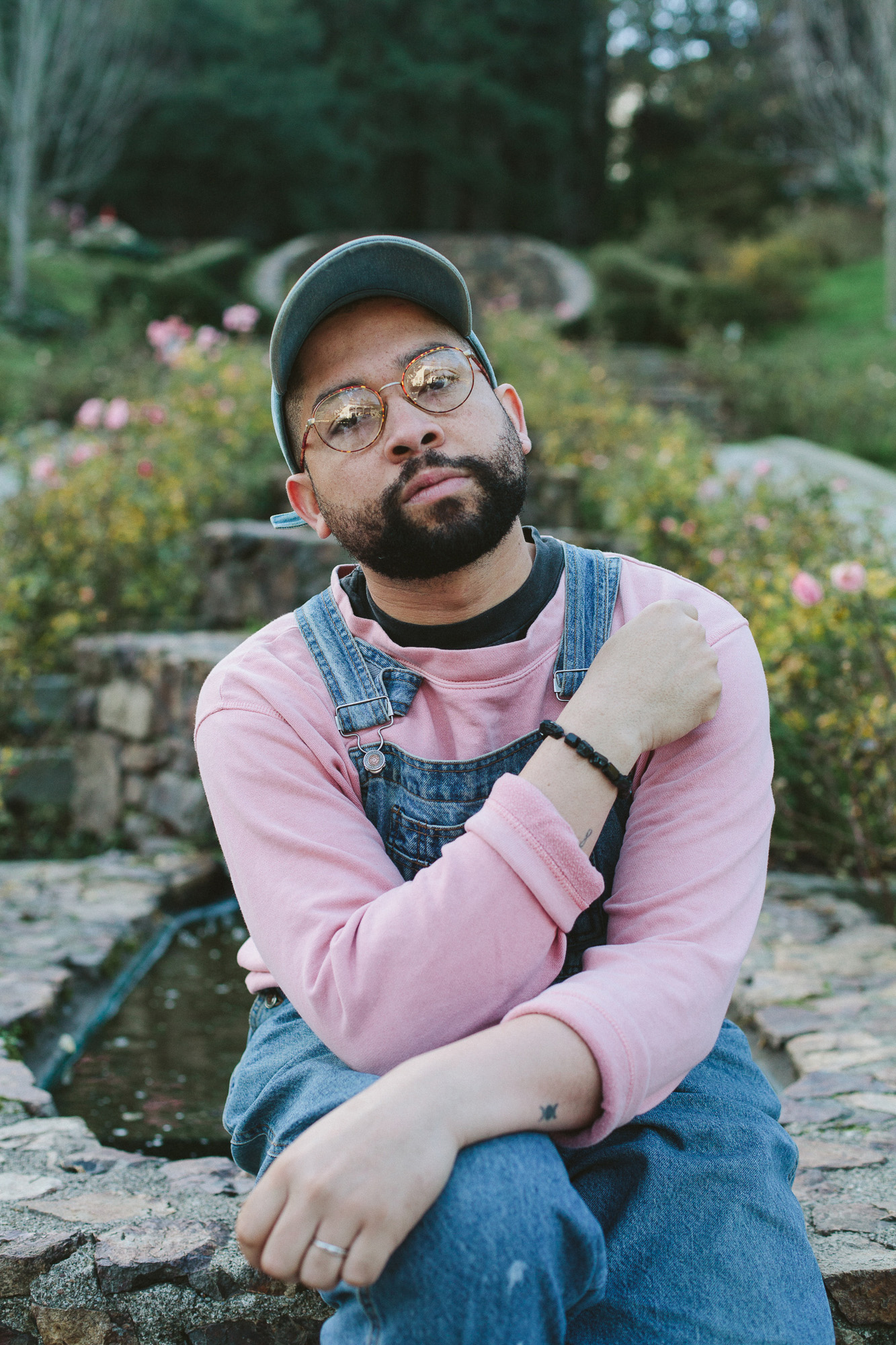
Looking forward then, Butler will be spending the next few months in Europe bringing their collective sonic process to new shores. From the end of February to May, they’ll be based out of Prague, holding down a residency at the local Synth Library with an apt motto, “Deep listening. No silencing All shapes and colours. Triggering change”
With more gigs lined up at clubs like Salon Zur Wilden Renate alongside LSDXOXO and Machine Woman, Butler will, if there’s any justice, become more of a household name in the coming months.
They also have a new EP set to drop in June via Oklahoma label, Fixed Rhythms. Featuring two excerpts of a live set played last December, ‘606 Trax’ is once again, an ode to friends, community and the vitality of exchange that defines Butler’s art. Having lost their own TR606 in Ghost Ship as well as their friend Johnny Igaz (Nackt), they borrowed a 606 from Igaz’ brother, who has set up a lending library compiled of Nackt’s old equipment. Recorded largely using the drum machine, ‘606 Trax’, as they explain, “keeps him alive in a certain way”.
And that’s what it all boils down to. In the face of obstacles, tragedy and adversity, Butler’s art forms a creative, philosophical core, not just for them, but for their community. And that is what holds on the most. As they say, “I can very easily get caught up in every single minutiae of The Struggle, but then I'm not making art any more”.
Brick by brick, Russell E.L. Butler is helping to build a defiant world of sound. With machines, with their community, with good will, Russell E.L. Butler is building a home.
MIx tracklist:
Golden Filter - Talk Talk Talk (Kasper Bjorke and Colder Remix)
DJ Qu - Whistle Song
Taraval - Stans Loon
Inhalants - Humid Widow
Lee Gamble - Comaskank (BinocConvergeMix)
Kraviz and Exos -No Criminals
Nutype - Noisy Ride
Jeff Mills - The Exchange
DJ Randy - Deception (Aquaplex Remix)
??? - ???
Repercussions - Paranormal Channel
DJ Marfox - Kassumbula
Ismael - As She Walks By
Via App - Airborne Shuffle
Jlin - Erotic Heat
Mark Fell and Gabor Lazar -Track 3
Urban Tribe - EEG
Hype Williams - The Throning

